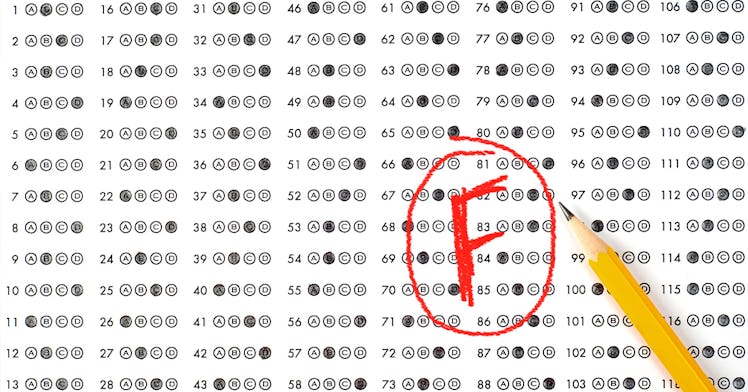New Study Finds High School GPA Beats Standardized Tests
In terms of predicting college success, grades are still way more useful.

Widely held assumptions about how to measure “college readiness” are wrong, if a new study from two University of Chicago researchers is to be believed.
“The bottom line is that high school grades are powerful tools for gauging students’ readiness for college, regardless of which high school a student attends, while ACT scores are not,” said lead author Elaine Allensworth in a press release.
In fact, high school GPAs were five times better at predicting college graduation than ACT scores. This is the opposite of conventional wisdom.
“While people often think the value of GPAs is inconsistent across high schools, and that standardized test scores, like the ACT, are neutral indicators of college readiness because they are taken by everyone under the same conditions,” Allensworth said. “Our findings indicate otherwise.”
Allensworth and her coauthor, Kallie Clark, chose to use data from the Chicago Public Schools. This gave them the advantage of a large dataset—17,753 students were included—and the wide variety of high schools that’s typical of large, urban school districts. Plus, all of the students included took the ACT in the spring of 11th grade and enrolled in a four-year college the fall after graduation, so it was easy to compare them once school effects were taken into account.
The relationship of high school GPA with college graduation was “strong and consistent and larger than school effects.” ACT scores, on the other hand, were less reliable than school effects at predicting college graduation, with a smaller effect on average and a relationship that was positive, negative, or neutral depending on the school.
Allensworth believes this is because GPAs measure a “very wide variety of skills and behaviors that are needed for success in college, where students will encounter widely varying content and experiences.” Standardized tests, on the other hand, measure a much smaller set of skills, and work students can do to raise their standardized test scores may not be good for much beyond that.
For parents, these findings could mean that paying for academic tutoring is a better long-term investment than paying for standardized test prep. High school staff might choose to focus on improving GPAs instead of test scores.
Of course, these adjustments would only work if college admissions offices that value ACT scores over GPAs made a similar switch, as getting into college is a prerequisite to graduating. Until that happens, the gap between the skills one needs to get into college and the skills one needs to graduate from college will persist.
Policymakers might also want to consider ending their heavy reliance on standardized test scores to measure college readiness. Allensworth and Clark suggest that looking at students’ actual performance in college and finding which high school factors best predict it is a better measure of college readiness than a test a student took as a teenager.